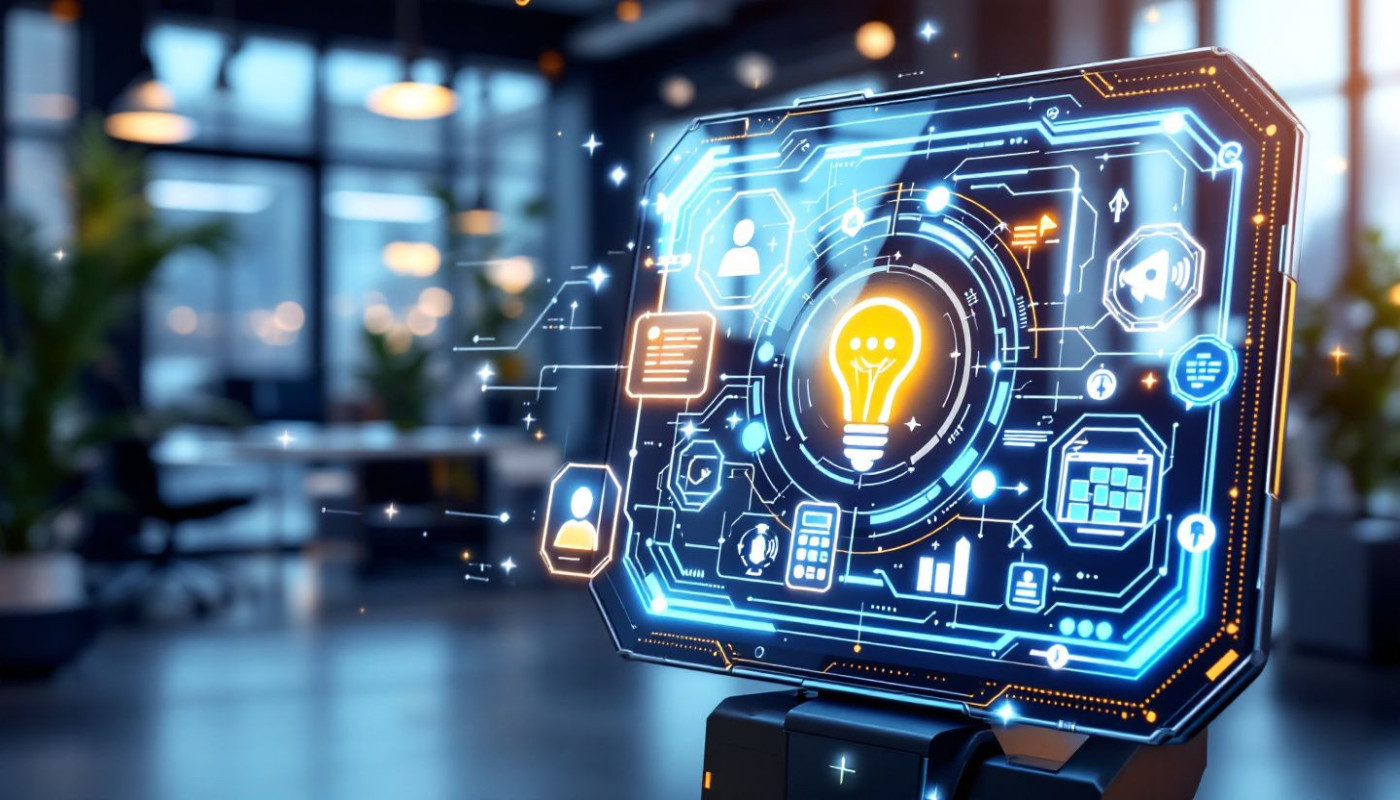Table of contents
In today's fast-paced world, the quest for personal productivity has never been more pivotal. With each passing day, artificial intelligence evolves, offering innovative solutions that streamline tasks, manage time effectively, and boost efficiency. The advent of AI-powered applications marks a transformative era where technology and human potential converge to break new ground in personal productivity. This discourse delves into the latest AI applications poised to revolutionize the way individuals organize their lives and work. It promises to be a thrilling journey through the marvels of AI, exploring how these tools are not just changing, but dramatically enhancing our approach to productivity. Curiosity piqued? Read on to discover how artificial intelligence can be your ally in mastering the art of being productive. Unearth the digital gems that are redefining the landscape of personal efficiency and reclaim the precious commodity of time.
The Evolution of AI in Personal Productivity
Tracing the trajectory of AI evolution in the context of personal productivity unveils a remarkable shift from rudimentary task automation to sophisticated complex problem-solving capabilities. The early stages of AI's integration into productivity tools were characterized by automating simple, repetitive tasks like setting reminders and sorting emails. As machine learning—an integral branch of AI that allows systems to learn and improve from experience without explicit programming—began to mature, so too did the potential applications for personal productivity. We now witness a productivity transformation where AI-driven applications can analyze large volumes of data, make predictions, and suggest optimal workflows tailored to individual preferences and work styles. These advancements have significantly enhanced the efficiency and effectiveness of personal productivity tools, transitioning them from mere conveniences to indispensable assets in managing our professional and personal lives.
Enhancing Time Management with AI
Artificial Intelligence has revolutionized the way individuals manage their time, offering tools that aid in streamlining tasks and schedules. Smart scheduling applications, using advanced algorithms, assist users in allocating their time effectively, ensuring that deadlines are met with less stress. Prioritization algorithms play a significant role in helping individuals focus on the most pressing tasks, thereby optimizing daily productivity. Moreover, predictive time allocation technologies forecast how long future tasks will take, allowing for more accurate planning. These AI time management solutions are underpinned by natural language processing, a technical facet that enables the software to understand and interpret human language, making interaction with the applications more intuitive and efficient. For those seeking to delve into the intricacies of how these technologies can be applied to personal productivity, a knowledgeable AI researcher in human-computer interaction would recommend exploring resources that detail these advancements. To learn more about the potential of AI in enhancing personal productivity through effective scheduling, one might check my source for an insightful exploration of AI-powered applications.
AI and the Future of Work-Life Balance
The integration of AI into our daily routines has profound implications for enhancing work-life balance. AI-driven applications now enable a streamlined method for segregating and overseeing professional and personal tasks, fostering an environment where individuals can allocate their time and energy more effectively. The concept of 'cognitive offloading' comes into play—where the mental burden of remembering and organizing tasks is transferred onto digital assistants, calendars, and project management tools. This shift allows for a clearer mental space, potentially reducing stress and increasing the quality of both professional output and personal relaxation time.
The psychological benefits of this AI-facilitated balance cannot be overstated. By minimizing the mental load of task juggling, individuals may experience reduced anxiety and burnout, leading to improved mental health and well-being. Furthermore, the ability of AI to predict and suggest task prioritization based on behavior and habit analysis can provide a tailored approach to personal task optimization. This not only enhances efficiency but also empowers users to make more informed decisions about how they spend their time, thus promoting a healthier work-life equilibrium.
With 'AI mental health' emerging as a significant field of interest, the intersection between technology and psychology is yielding new insights into how we can better manage our lives. By leveraging AI for professional task management, we can carve out more quality time for personal pursuits, fostering a balance that resonates with our psychological needs and professional demands. As AI continues to evolve, its role in fostering sustainable work-life balance remains a testament to its transformative impact on modern life.
Overcoming Procrastination with AI Assistance
In the realm of personal productivity, the hurdle of procrastination looms large, often hindering individuals from achieving their full potential. Artificial Intelligence (AI) has emerged as a formidable ally in the battle against this productivity nemesis. Through AI reminders, these intelligent systems nudge users towards completing tasks by sending timely alerts, ensuring that priorities are addressed before deadlines. Moreover, motivational AI serves as a digital coach, providing encouragement and reinforcing positive behaviors that align with personal goals and deadlines. Progress tracking is another facet where AI excels; by monitoring one's activities and accomplishments, these applications offer visual progress indicators. This feedback loop not only offers satisfaction from completed tasks but also helps in identifying patterns that lead to procrastination, allowing for targeted interventions. Behavioral analytics, a field of study that a behavioral scientist with a background in productivity and technology would be well-versed in, is at the core of these applications, ensuring that the assistance provided is tailored to the unique habits and needs of the user. Consequently, the convergence of AI with behavioral science holds significant promise for those seeking to enhance their productivity by overcoming procrastination.
Customizing AI for Individual Productivity Needs
Advancements in AI technology have paved the way for a new era of personalized productivity tools that cater to the unique demands of each user. AI applications are now capable of analyzing user behavior learning patterns to suggest individual productivity strategies that align with one’s personal workflow and preferences. The potential of AI to adapt to different professions and lifestyles is significant, offering a bespoke experience that can enhance efficiency and output across various sectors.
Through the use of neural networks, AI systems can process vast amounts of data, identifying habits and predicting needs to tailor recommendations and tasks. This level of AI customization ensures that strategies are not one-size-fits-all but are instead finely tuned to the specific rhythms and requirements of the individual. Whether it's for a busy executive, a creative professional, or a stay-at-home parent, adaptive AI applications have the capability to transform mundane routines into optimized sequences of productivity.
To achieve this high degree of personalization, developers with expertise in adaptive learning systems are focusing on creating algorithms that can learn from each interaction. As the AI observes how a user prioritizes tasks, allocates time, and manages deadlines, it refines its approach to assist in a manner that is increasingly supportive and effective. This continuous learning process ensures that the AI remains relevant and valuable as the user's needs evolve over time.
On the same subject

Exploring The Impact Of Audit Log Automation On System Security

Exploring The Benefits Of Unified Communication Systems In Modern Businesses

How Augmented And Virtual Reality Are Transforming Web Experiences?

Exploring The Impact Of AI On Customer Service Efficiency

How Generative AI Is Transforming Industries With Innovative Solutions

Exploring The Future Of AI Detection Technology In Digital Communication

Exploring The Best Free And Paid Fundraising Platforms For Various Causes

The Impact Of Outdated Applications On System Security

